Cereal offender: is Kellogg’s breaking its breakfast promises?

Executive summary
Food fortification plays an important role in addressing micronutrient deficiencies and tackling malnutrition. Breakfast cereals are one of the most commonly fortified foods and dominate many children’s diets globally. This paper examines more closely the voluntary commitments on fortification and their implementation by the world leader in breakfast cereals, Kellogg’s. The paper focuses on Mexico, where Kellogg’s dominates the breakfast cereal market: a 2013 national survey found that four of the five most commonly bought breakfast cereals for children are Kellogg’s brands.
In its strategy documents, Kellogg’s articulates its responsibility to play a role ‘in tackling the global challenges of food security including undernutrition, hidden hunger, and obesity in middle- and low-income communities across the globe’ through delivering ‘healthy foods for people of all income levels in every country’. Kellogg’s also made bold claims that it had addressed ‘nutrition shortfalls’ and ‘improved Latin American cereals with the right amounts of Vitamins A, B and D, iron, calcium, folic acid and antioxidants.’
To assess whether these claims are true, Changing Markets has assessed the micronutrient make-up of Kellogg’s breakfast cereals in Mexico. Our comparison of micronutrient levels in 2013 and 2018 reveals that, in the last five years, Kellogg’s cereals have become significantly poorer in terms of minerals and vitamins. Across the board, analysis of the five most popular Kellogg’s breakfast cereals showed that over two thirds of all micronutrients across all five cereals had been reduced or removed when compared to 2013 levels. Several types of B vitamins and vitamins C and E have been significantly reduced or entirely removed. The levels of iron have been reduced in all five cereal brands analysed, despite the fact that iron deficiency rates among the Mexican population remained almost unchanged during this period.
The findings show a lack of scientific rationale behind the fortification of Kellogg’s breakfast cereals. The company’s commitments and claims that Kellogg’s fortifies its cereals with ‘nutrients specific for the needs of the area’ in the case of Mexico seem to be empty words.
PARTNERS


You might also like...

Daily Bread: Are tortillas and breads in Mexico adequately fortified?
This report explores the issue of flour fortification in Mexico, revealing that companies that make tortillas and breads are often not using flour that complies with the law.

Micronutrient deficiencies in Mexico: Ironing out the kinks
This briefing looks into the issue of flour fortification in Mexico, specifically at whether flour companies are following the recommendations on the most effective iron sources.

Maizena’s missing micronutrients
This report looks at Unilever’s voluntary initiative on fortification in Mexico, and reveals a glaring lack of consistency between the company’s commitments and its business practice when it comes to fortifi...